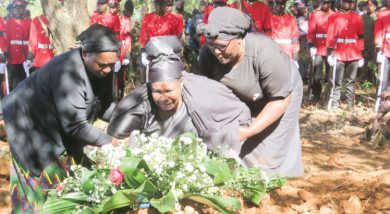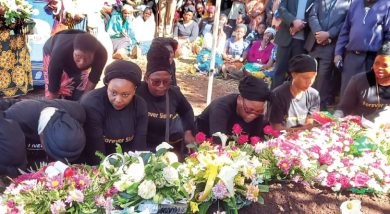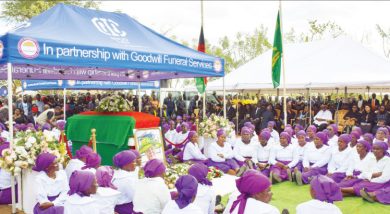Politicians dared on continuity, sustainability
Former president Bakili Muluzi and other stakeholders have cited continuity of projects and embracing State institutions despite changes of administration as key to achieving the Malawi 2063, the country’s long-term development strategy.
The sentiments were made after Muluzi became the latest to receive the Malawi 2063 Intergenerational Champion Certificate from the National Planning Commission (NPC).
The NPC lauded Muluzi for bringing multiparty democracy and championing the establishment of governance institutions such as the Anti-Corruption Bureau, the Office of the Ombudsman, Malawi Human Rights Commission and Financial Intelligence Unit.

But stakeholders interviewed yesterday expressed disappointment that such governance institutions have failed to perform as expected and that Muluzi’s vision for the country’s development has not been fully realised due to poor governance, funding challenges and political intervention.
In an interview, political analyst Ernest Thindwa said it was disappointing that the country’s democracy project has not delivered the anticipated good governance and desirable development outcomes.
He said the major setback over the years has been the political class which has used State institutions as tools for consolidating power.
Said Thindwa: “State institutions have not primarily been regarded as instruments for optimising development outcomes, but rather as arenas for rewarding perceived party loyalists.”
He called on President Lazarus Chakwera to set clearly annual measurable performance targets and indicators for all government ministries, departments and agencies (MDAs) aligned to MW2063, share the same with the general public and demand results from each responsible minister.
On his part, political strategist Humphrey Mvula cited poor funding, lack of capacity, lack of awareness among the public on the importance of governance institutions and the spirit of individualism as some of the setbacks choking the country’s democracy.
He said: “We need to go back to the drawing board and think of Malawi as a nation not always about politics based on tribes and regionalism.
“There are so many political parties, but they are failing to advance the needs of Malawians due to lack of the spirit of nationalism.”
NPC board chairperson Richard Mkandawire described leaders of different political parties as central in ensuring the implementation of the Malawi 2063 vision and its continuity.
“The Malawi Vision 2020 which Muluzi was a lead champion was not fully realised. NPC is apolitical and was established to ensure continuity of projects despite change in leadership. We are building on the Vision 2020 and we seek the former president’s guidance and support in championing this blueprint,” he said.
In his acceptance speech, Muluzi thanked NPC for the recognition calling for support to all governance institutions to ensure meaningful democracy and the attainment of the MW2063.
He said: “These governance institutions must be given all the support they need in order for them to execute their functions professionally and according to the law. They must be led by men and women of integrity for the good of our democracy.”
NPC has also awarded Chakwera, Vice-President Saulos Chilima as well as former presidents Joyce Banda and Peter Mutharika for their various contributions to the development of the country.





